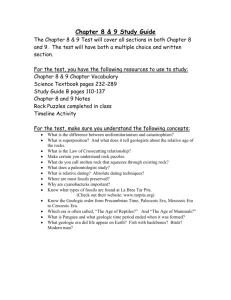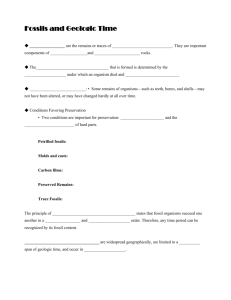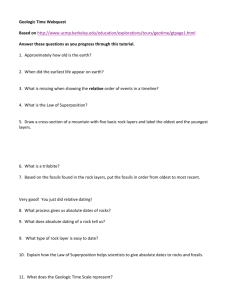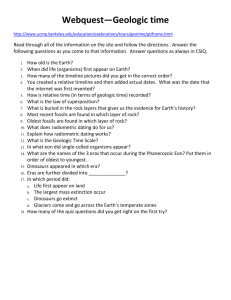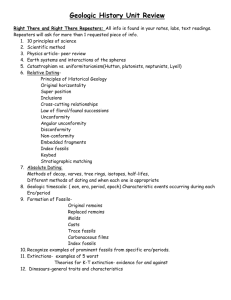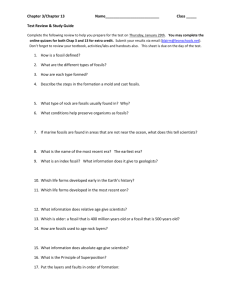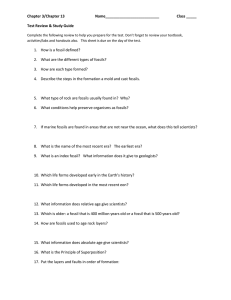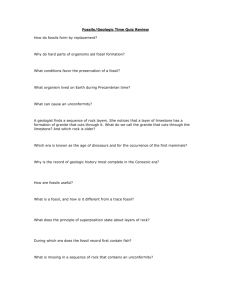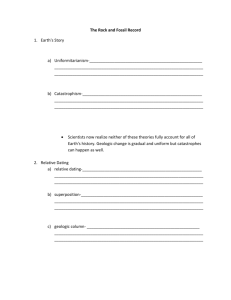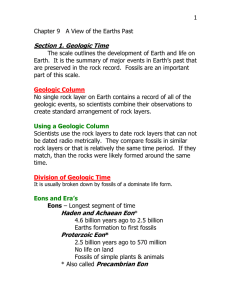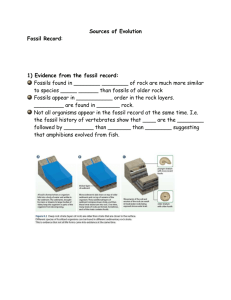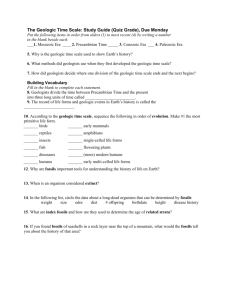Printable Study Guide - Petoskey Public Schools
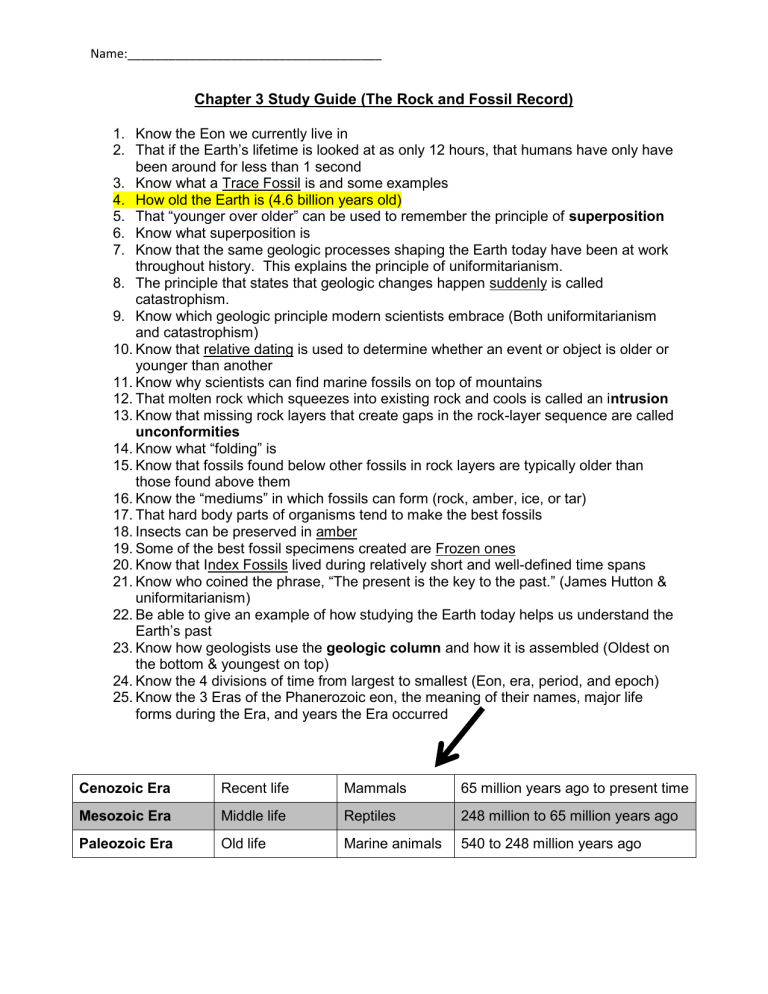
Name:_____________________________________
Chapter 3 Study Guide (The Rock and Fossil Record)
1. Know the Eon we currently live in
2. That if the Earth’s lifetime is looked at as only 12 hours, that humans have only have been around for less than 1 second
3. Know what a Trace Fossil is and some examples
4. How old the Earth is (4.6 billion years old)
5. That “younger over older” can be used to remember the principle of superposition
6. Know what superposition is
7. Know that the same geologic processes shaping the Earth today have been at work throughout history. This explains the principle of uniformitarianism.
8. The principle that states that geologic changes happen suddenly is called catastrophism.
9. Know which geologic principle modern scientists embrace (Both uniformitarianism and catastrophism)
10. Know that relative dating is used to determine whether an event or object is older or younger than another
11. Know why scientists can find marine fossils on top of mountains
12. That molten rock which squeezes into existing rock and cools is called an i ntrusion
13. Know that missing rock layers that create gaps in the rock-layer sequence are called unconformities
14. Know what “folding” is
15. Know that fossils found below other fossils in rock layers are typically older than those found above them
16. Know the “mediums” in which fossils can form (rock, amber, ice, or tar)
17. That hard body parts of organisms tend to make the best fossils
18. Insects can be preserved in amber
19. Some of the best fossil specimens created are Frozen ones
20. Know that Index Fossils lived during relatively short and well-defined time spans
21. Know who coined the phrase, “The present is the key to the past.” (James Hutton & uniformitarianism)
22. Be able to give an example of how studying the Earth today helps us understand the
Earth’s past
23. Know how geologists use the geologic column and how it is assembled (Oldest on the bottom & youngest on top)
24. Know the 4 divisions of time from largest to smallest (Eon, era, period, and epoch)
25. Know the 3 Eras of the Phanerozoic eon, the meaning of their names, major life forms during the Era, and years the Era occurred
Cenozoic Era Recent life Mammals
Mesozoic Era
Paleozoic Era
Middle life
Old life
Reptiles
65 million years ago to present time
248 million to 65 million years ago
Marine animals 540 to 248 million years ago
